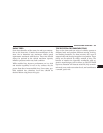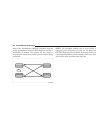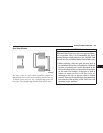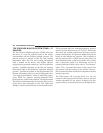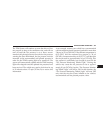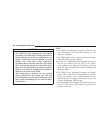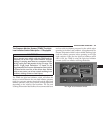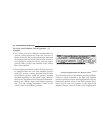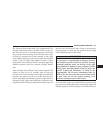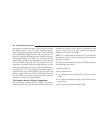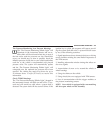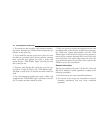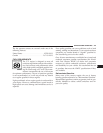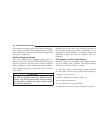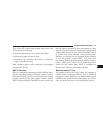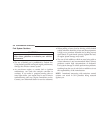
Tire Pressure Information label. The Supplemental Tire
Pressure Information label is located on the rear face of
the driver door. Use an accurate tire gauge to check the
tire pressures when lowering all four tire pressures. After
all four tire pressures have been lowered to the Light
Load inflation pressures, press the tire light load inflation
switch. If the tire light load inflation switch’s amber
colored LED turns ON, the TPMS is using the light load
inflation pressure (cold) low pressure warning thresh-
olds.
If the tire light load inflation switch amber colored LED
flashes on and off for 10 seconds, after all four tire
pressures have been lowered to the Light Load inflation
pressures, the pressure in any one of the four tires may
not be at the light load inflation pressure (cold) values as
indicated for the Light Load condition as defined on the
Supplemental Tire Pressure Information label located on
the rear face of the driver door. Using an accurate tire
pressure gauge, re-check the tire pressures for the light
load inflation pressure (cold) value.
WARNING!
It is the driver’s responsibility to change to the max
load inflation pressure (cold) low pressure warning
threshold condition when not driving in the light
load condition as defined as two occupants (150 lbs
[68 kg] each) plus 200 pounds (91 kg) of cargo. The
vehicle “Light Load Definition” is found in the
Supplemental Tire Pressure Information label lo-
cated on the rear face of the driver door. Failure to do
so may cause you to lose control resulting in an
accident, causing serious or fatal injury.
To switch back to the max load inflation pressure (cold)
low pressure warning threshold, press the tire light load
inflation switch. It is not necessary to first fill the tires to
STARTING AND OPERATING 371
5



